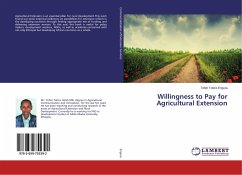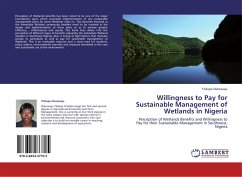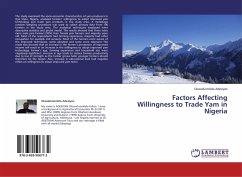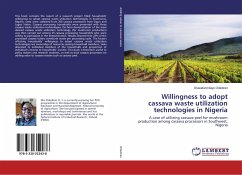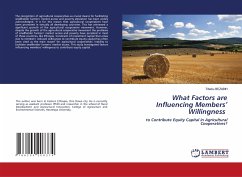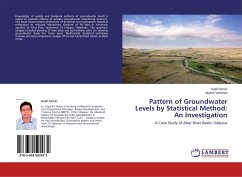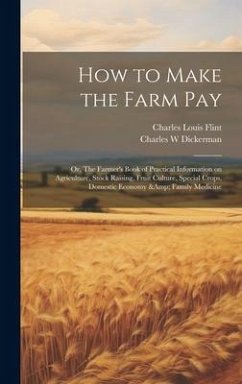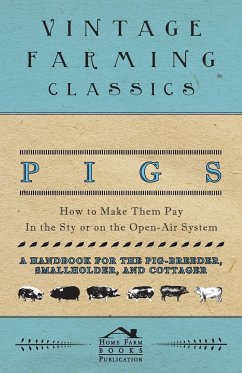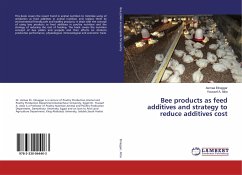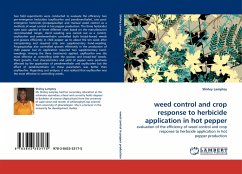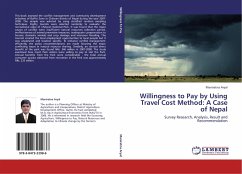
Willingness to Pay by Using Travel Cost Method: A Case of Nepal
Survey Research, Analysis, Result and Recommendation
Versandkostenfrei!
Versandfertig in 6-10 Tagen
39,99 €
inkl. MwSt.

PAYBACK Punkte
20 °P sammeln!
This book assessed the conflict management and community development initiatives of Buffer Zone in Chitwan district of Nepal during the year 2007-2008. The sample was selected by using stratified random sampling technique. Eighty tourists were selected randomly to evaluate the recreational value of Chitwan National Park. It was found that the major causes of conflict were insufficient natural resources collection period, ineffectiveness of animal preventive measures, inadequate compensation to human, domestic animals and crop damage and monsoon flooding. The tourism created the local employmen...
This book assessed the conflict management and community development initiatives of Buffer Zone in Chitwan district of Nepal during the year 2007-2008. The sample was selected by using stratified random sampling technique. Eighty tourists were selected randomly to evaluate the recreational value of Chitwan National Park. It was found that the major causes of conflict were insufficient natural resources collection period, ineffectiveness of animal preventive measures, inadequate compensation to human, domestic animals and crop damage and monsoon flooding. The tourism created the local employment opportunities to local people but it was unplanned and location specific. To enhance conflict management efficiently, the policy recommendations are made focusing the major conflicting issues in natural resource sharing. Similarly, an annual direct benefit of the park was found NRs. 346 million in 2007-2008. The study examined how much Park visitors were willing to pay to visit the Park. Annual benefits from the Park were considerable - the total annual consumer surplus obtained from recreation in the Park was approximately NRs. 233 million.



